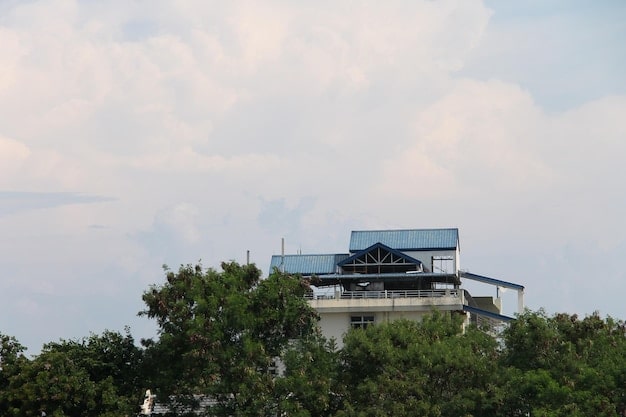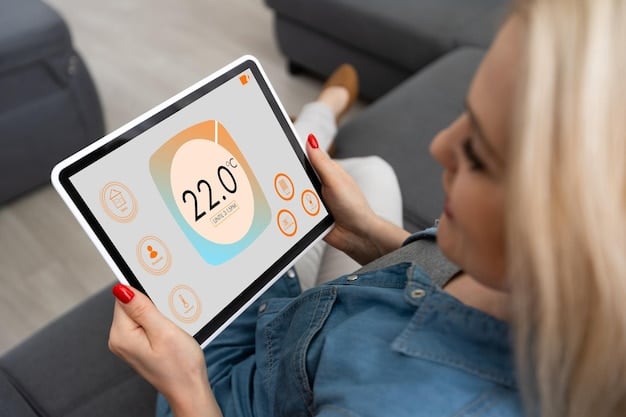Federal Grants for Home Energy Efficiency: Apply by January 31st

New federal grant programs are available to help homeowners improve energy efficiency, offering financial assistance for upgrades; applications must be submitted before the January 31st deadline.
Are you looking to make your home more energy-efficient and save money on utility bills? The clock is ticking! New federal grant programs are now available to help homeowners like you upgrade their homes and reduce energy consumption. Don’t miss out on this opportunity – the deadline to apply for these New Federal Grant Programs for Home Energy Efficiency: Apply Before the January 31st Deadline is fast approaching.
Understanding Federal Grants for Home Energy Efficiency
Federal grants provide financial assistance to homeowners to improve their energy efficiency. These programs aim to reduce energy consumption, lower utility bills, and promote environmental sustainability. With various initiatives available, understanding the basics can help you take advantage of these opportunities.
Benefits of Energy Efficiency Grants
Energy efficiency grants can offer numerous benefits to homeowners. These programs often cover a range of upgrades, from insulation and weatherization to installing energy-efficient appliances and renewable energy systems.
- Reduced utility bills due to lower energy consumption.
- Increased home value through energy-efficient upgrades.
- Improved indoor comfort with better insulation and climate control.
- Positive impact on the environment by reducing carbon footprint.
Types of Available Grants
A variety of federal grant programs are available, each with specific eligibility requirements and coverage. Some grants focus on low-income households, while others target specific types of energy-efficient upgrades.
Several programs provide assistance, including those focused on weatherization, renewable energy, and appliance upgrades. Homeowners should review the eligibility criteria for each program to determine which ones align with their needs and qualifications.
In conclusion, understanding the basics of federal grants for home energy efficiency, including the benefits and types of available grants, can help homeowners make informed decisions and take advantage of these valuable resources.
Key Programs and Initiatives
Several key federal programs and initiatives are designed to support home energy efficiency. These initiatives offer financial assistance, technical support, and incentives for homeowners looking to upgrade their homes.

Weatherization Assistance Program (WAP)
The Weatherization Assistance Program (WAP) is a flagship initiative that helps low-income families reduce their energy costs by improving the energy efficiency of their homes. WAP provides funding for various weatherization measures, such as insulation, air sealing, and heating system repairs.
- Offers comprehensive energy audits to identify areas for improvement.
- Provides funding for energy-efficient upgrades and repairs.
- Serves low-income households with priority given to vulnerable populations.
Energy Efficiency Home Improvement Credit
The Energy Efficiency Home Improvement Credit, also known as 25C, incentivizes homeowners to make energy-efficient improvements by offering a tax credit. This credit covers a portion of the costs for qualified energy-efficient improvements, such as energy-efficient windows, doors, insulation, and HVAC systems.
This initiative supports homeowners in making upgrades by providing a tax credit for eligible improvements. By participating in the 25C tax credit program, homeowners can reduce their tax liability while improving the energy efficiency of their homes.
In summary, key programs and initiatives like the Weatherization Assistance Program and the Energy Efficiency Home Improvement Credit offer valuable resources for homeowners looking to enhance their home’s energy efficiency.
Eligibility Requirements for Federal Grants
Understanding the eligibility requirements for federal grant programs is essential for homeowners looking to apply. Each program has specific criteria that applicants must meet to qualify for financial assistance.
Income Limits
Many federal grant programs have income limits to ensure assistance is targeted to those who need it most. Income limits vary depending on the program and the region, so it’s essential to check the specific requirements for each grant.
- Review the income limits for each grant program on the official website.
- Gather necessary documentation to verify income, such as tax returns and pay stubs.
- Consider household size and composition when determining eligibility.
Property Requirements
Federal grant programs also have property requirements that outline the types of homes eligible for assistance. These requirements may include restrictions on the age, location, or type of property.
These requirements may include factors such as the age and location of the property, as well as the type of dwelling (e.g., single-family home, apartment). Additionally, some programs may prioritize older or less energy-efficient homes that would benefit most from upgrades.
In essence, understanding and meeting the eligibility requirements for federal grant programs, including income limits and property requirements, is vital for homeowners seeking financial assistance for energy-efficient upgrades.
How to Apply for Energy Efficiency Grants
Applying for energy efficiency grants involves several steps, from gathering necessary documentation to submitting the application by the deadline. Understanding the application process can increase your chances of receiving financial assistance.
Gathering Required Documentation
Before starting the application, gather all required documentation, such as proof of income, property ownership, and energy bills. Having these documents ready will streamline the application process and ensure you provide complete information.

- Collect proof of income, such as tax returns or pay stubs.
- Obtain proof of property ownership, such as a property deed.
- Gather recent energy bills to demonstrate energy usage.
Submitting the Application Before the Deadline
Pay close attention to the application deadline and submit your application well in advance. Late submissions may not be considered, so it’s essential to prioritize the application and submit it on time.
To avoid missing the deadline, create a timeline and allocate sufficient time for each step of the application process. Ensure that all required documentation is complete and accurate before submitting the application.
In summary, applying for energy efficiency grants involves careful planning, gathering required documentation, and submitting the application on time.
Maximizing Your Grant Application Success
To improve your chances of securing energy efficiency grants, focus on presenting a compelling case and highlighting the potential impact of your upgrades.
Highlighting Energy Savings Potential
When applying for energy efficiency grants, emphasize the potential energy savings and environmental benefits of your proposed upgrades. Calculate the estimated reduction in energy consumption and showcase the positive impact on the environment.
Calculating energy savings can involve assessing current energy usage, identifying areas for improvement, and estimating the impact of proposed upgrades. By quantifying these benefits, you can demonstrate the value of your project and increase your chances of receiving funding.
Demonstrating Financial Need
If you meet the income requirements for the grant, clearly demonstrate your financial need in the application. Provide accurate income information and explain how the grant will help you afford essential energy-efficient upgrades.
Highlighting financial need can involve explaining your current energy burden, detailing any financial hardships you face, and demonstrating how the grant will alleviate these challenges. By emphasizing your need for assistance, you can strengthen your application and increase your chances of approval.
In conclusion, maximizing your grant application success involves highlighting energy savings potential and demonstrating financial need.
Resources for Additional Information and Support
Several resources are available to provide additional information and support for homeowners interested in energy efficiency grants. These resources can help you navigate the application process and make informed decisions about your home energy upgrades.
Government Websites and Hotlines
Government websites and hotlines offer valuable information about federal grant programs and eligibility requirements. These resources can provide detailed program descriptions, application instructions, and contact information for program administrators.
- Visit the U.S. Department of Energy website for information on energy efficiency programs.
- Contact the Weatherization Assistance Program (WAP) hotline for assistance with weatherization grants.
- Explore the Database of State Incentives for Renewables & Efficiency (DSIRE) for state-specific incentives.
Non-Profit Organizations
Non-profit organizations provide assistance to homeowners interested in energy efficiency upgrades and grant opportunities. These organizations offer educational resources, technical support, and advocacy services.
In conclusion, resources for additional information and support, including government websites, hotlines, and non-profit organizations, can empower homeowners to successfully navigate the grant application process and implement energy-efficient upgrades.
| Key Point | Brief Description |
|---|---|
| 💰 Grant Availability | Federal grants available for home energy efficiency. |
| 🗓️ Application Deadline | Submit applications before January 31st. |
| 🏠 Eligibility | Income and property requirements apply. |
| ⚡ Savings | Reduce energy bills and environmental impact. |
Frequently Asked Questions
▼
The grants typically cover a range of upgrades including insulation, weatherization, energy-efficient appliances, and renewable energy systems like solar panels. Specific coverage varies by program.
▼
You can provide proof of income by submitting tax returns, pay stubs, or other official documents that verify your household income. Requirements may vary by program.
▼
If you miss the deadline, your application may not be considered. However, it is worth checking for future funding rounds or alternative grant programs.
▼
It depends on the specific rules of each grant program. Some programs may allow concurrent applications, while others may require you to choose one program.
▼
Official application forms can be found on the websites of the relevant government agencies or non-profit organizations administering the grants. Always use official sources.
Conclusion
In conclusion, exploring new federal grant programs for home energy efficiency can significantly benefit homeowners by reducing energy costs and promoting sustainability. With the January 31st deadline approaching, now is the time to gather your documents, review your eligibility, and submit your application to take advantage of these valuable resources.





